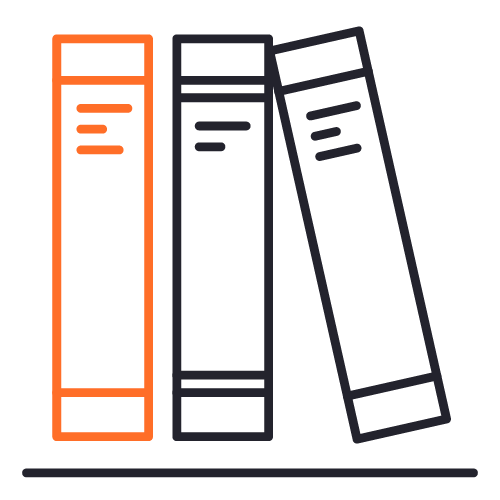What is the transformative scenarios approach?
Transformative scenarios is an approach that employs scenarios not only to adapt to an unpredictable future but to influence or transform the future.
This approach was first applied in South Africa during the transition from apartheid and since then has been employed in many contexts worldwide by diverse multi-stakeholder teams.
Transformative scenarios enable you to construct shared understandings, build stronger relationships, and develop clearer intentions to create the potential to shape a better future.
While most scenario planning methodologies focus on adaptation, transformative scenarios seek to not only understand or adapt to the future but also to shape it.
The structured yet creative process helps diverse actors to see the different futures that are possible and discover what they can and must do.
Transformative scenarios differ from other scenario planning methodologies in that:
- The focus is not only to understand or adapt to the future but also to shape and transform it.
- The scenarios are crafted not by academics or consultants but by an inclusive multi-stakeholder and multi-disciplinary group of actors who comprise a “microcosm” of the system.
Each participant holds a valuable piece of a wider puzzle, not only in their knowledge but also in their agency and sphere of influence. - The co-creative facilitation approach builds relationships, trust, insight, ownership, and collaborative capability, thus generating results that go beyond the knowledge outputs produced.
What are scenarios?
Transformative scenarios offer a way for diverse stakeholders to unblock polarised or stuck situations.
The facilitated process combines imagination and rigour.
It is useful when a diverse set of people face a complex challenge that is vital to them but that they have yet to be willing or able to work on together, perhaps because they disagree on the very nature of the problem.

Not predictions or proposals
A scenario is not a story about what will happen (a forecast or prediction) or a story about what should happen (a vision, proposal, or plan).

Stories of possible future
A scenario is a story about what could happen: an internally-consistent hypothesis about the future that is relevant, challenging, plausible, and clear.

A tool for strategic conversation
Scenarios are a tool for communicating about and working with an unpredictable future.
The 3 phases of the transformative scenarios approach
Reos Partners' transformative scenarios approach typically follows 3 phases:

Convening
- Clarify scope and purpose
- Map stakeholders
- Establish convening power
- Convene a diverse team that represents a microcosm of the system

Construction
- Meet in workshops to build scenarios
- Map driving forces, key certainties and uncertainties
- Generate and iterate scenario narratives
- Write scenario text

Communication and engagement
- Identify strategic implications of scenarios
- Identify individual and collective actions
- Disseminate the scenarios through multiple media and channels
- Enable strategic dialogues among target audiences
Transformative scenarios in the real world
Explore some of the projects we’ve supported below.
Transformative scenarios to address climate change in Australia
Challenge: Australia experiences bushfires regularly, but the 2019-2020 season was the most severe in history. It caused almost 500 deaths and destroyed over 24 million hectares of bushland, resulting in approximately 900 million tonnes of CO2 emissions -– equivalent to those from commercial air travel worldwide. Additionally, around one billion animals lost their lives.
As the effects of climate change worsen, future bushfire seasons are anticipated to be longer and more devastating.
Partnership: A group of leaders and professionals from the emergency management sector (EMS) in Australia and New Zealand gathered together under the guidance of The Bushfire and Natural Hazards Cooperative Research Centre, Australasian Fire and Emergency Service Authorities Council, and facilitated by Reos Partners and RMIT University.
Using transformative scenarios, Reos helped the multi-stakeholder group devise new approaches to better plan, prepare, respond and recover from the turbulence and uncertainty of future climate events.
Transformation: Through transformative scenarios, participants have:
- Increased their confidence to plan, prepare, respond and recover from climate turbulence, and act with agency, clarity, agility, and speed in crises.
- Built a shared communication tool about how the future might unfold and a shared awareness and understanding of what they might do separately and together to adapt to and transform it.
- Strengthened strategic frameworks to navigate unpredictable futures.
- Shifted from feeling powerless and vulnerable to having confidence and agency.
- A new platform to collectively learn from.
Brazil Education Scenarios: transforming the future of education in Brazil
Challenge: In 2015, Brazil’s national education system was struggling to serve its 50 million students, and grade repetition and drop-outs were common. The system was fragmented, and the discourse was mired in ideological divides as various perspectives and priorities competed to influence the future of education in Brazil.
Partnership: Reos Partners used transformative scenarios to bring together a team of education leaders in Brazil to engage in dialogue about the different and often conflicting perspectives on what is required to transform the future of basic education in the country. The Brazil Education Scenarios became a meeting point for deep listening and learning to collaborate and explore conflicts and differences.
Transformation: There was a clear shift in the relationships between key stakeholders, most of whom had previously met only in adversarial contexts. The resulting National Scenarios for the Future of Education in Brazil were disseminated nationally. They provide new language, an improved understanding of the challenges beyond ideologies, and a precedent of relationship within the sector.
Chile to 2030: building a collaborative platform to foster cohesion for Chile’s political future
Challenge: In 2019, Chile experienced a period of political and social unrest. A collaborative citizen advocacy platform called Tenemos Que Hablar de Chile (We Have to Talk About Chile) was created in response.
Partnership: Supported by Reos Partners, Chileans from diverse backgrounds were guided to create scenarios – relevant, challenging, plausible stories – to influence and contribute to public policies and help engage citizens in the major political events taking place in the country.
We used transformative scenarios to organise and capture citizen dialogue about Chile’s future. This method enabled citizens to align and co-create scenarios that hypothesise what could happen in Chile between 2022 and 2030.
Transformation: Participants developed four scenarios to demonstrate the implications of possible futures. These scenarios serve as a tool for Chileans to prepare and adapt to the future and contribute to transforming it towards a more just and equitable country.
Scenario Thailand Foundation has partnered with Reos Partners in many endeavours since the political unrest in Thailand in 2011. We have learned and facilitated using Transformative Scenario Planning in various issues, from political conflicts to anti-corruption, both in-person and online approaches. Reos Partners is the true expert in facilitating truly immersive and participatory discussions in order to create collaborative efforts among those who may be in disagreement.
Jaruwaree (Fah) Snidwongse, Ph.D.
Scenario Thailand Foundation
I think the contribution that the Mont Fleur group made to the policy thought process in South Africa and beyond is very important. Because scenario planning, as we went through it, is really about how to organise one’s thinking process to come to a potential policy conclusion. And the thinking process requires one to be open-minded enough to engage in a thought process without any blinkers. This exercise challenged both our historically-held beliefs and our positions: it pushed us to confront these and then to see what we could do.
Tito Mboweni
Former Minister of Finance of the Republic of South Africa
The Destino Colombia Scenario Project was one of the most significant events in the country’s search for peace...It is truly breathtaking to read these scenarios now because they seem more prophetic than academic. It is good to know that the best scenario that we imagined 16 years ago is now beginning to be realised.
Juan Manuel Santos
Former President of Colombia